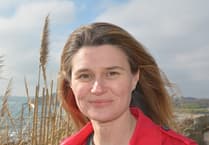The social history of disco music and its increasing popularity in a post-pandemic world is to be the subject of a UK-US academic conference in Cornwall this summer.
Staying’ Alive: The Many Afterlives of Disco has been orchestrated by historians at the University of Exeter in collaboration with counterparts at the University of Boulder, Colorado, and is scheduled to be held at the former’s Penryn campus on Friday, July 5 and Saturday, July 6.
Over two days, the conference will welcome researchers, DJs, activists, non-traditional scholars and music industry professionals from both sides of the Atlantic to discuss the enduring appeal of disco and how it reflects concerns around gender, race and culture. Live performances will lift it beyond the realms of a traditional higher education event.
“The phrase ‘dead as disco’ was once a common term, and yet 40 years on from its supposed expiration, the music and influence of disco is everywhere,” says conference co-organiser William Rees, an Exeter PhD history student.
“From Donna Summer to Daft Punk, Dua Lipa to Beyoncé, disco is on the radio, in clubs and on the dance floor. It appears to be enjoying a post-Covid boom, and exploring this resurgence will be among the topics of discussion.”
The conference’s keynote speaker will be musicology professor Louis Niebur, of the University of Nevada, whose 2022 book Menergy: San Francisco’s Gay Disco Sound traces the way disco and high energy dance music channelled the spirit of gay liberation through a shared dance-floor experience.
Renowned DJs Ronnie Soares and Luis Mario O. Rizzo will also speak at the event. Rizzo, is chairman of The Legends of Vinyl, an organisation dedicated to recognising early pioneers of DJing history and preserving the history of dance and disco.
Scottish DJ Frankie Elyse - who is dedicated to creating inclusive spaces for women, queer and transgenders peoples at her Polka Dot Disco discotheque - will play a keynote set at the end of the first day.
Some of the sessions will be live-streamed on the internet, including a round-table discussion on “Pioneer DJs of 1970s New York” (Friday, 2pm) a panel focused upon “Disco's Afterlives: From the 1980s to Today” (Friday, 3.45pm) and Professor Niebur’s keynote speech (Saturday, 3.45pm).
“This conference will bring together scholars of disco and dance music, industry professionals and dance activists to discuss disco’s history, present, and future,” adds co-organiser Professor Kristie Soares of the University of Boulder, Colorado.
“We will be exploring disco’s disruptive potential, how it blurs the lines between high and low culture, and the past and present economics of disco in the music industry, among other things.”
For more information, visit www.discoconference.com





Comments
This article has no comments yet. Be the first to leave a comment.